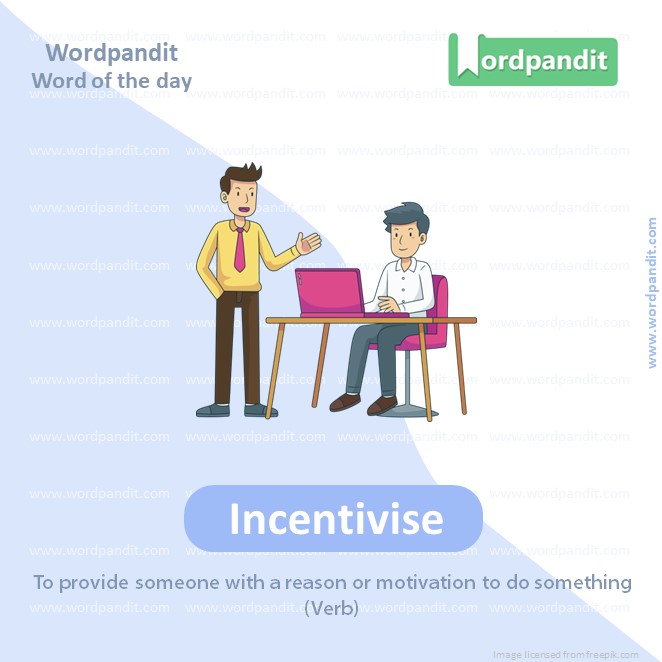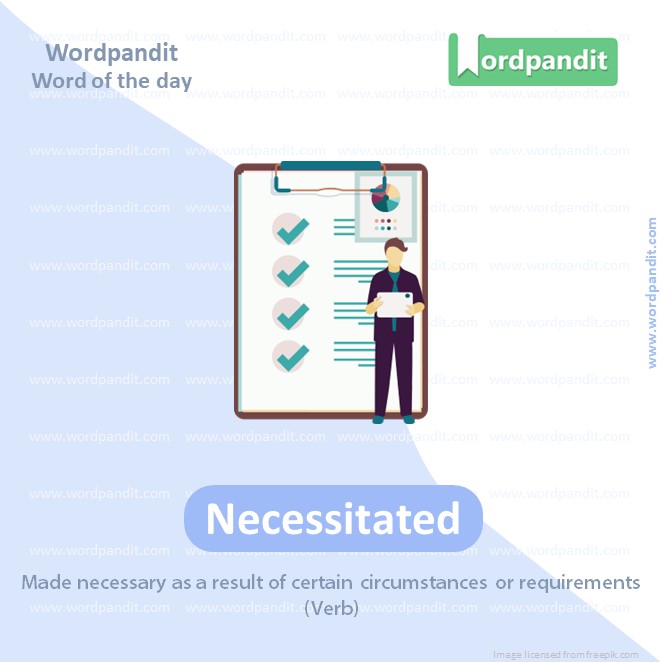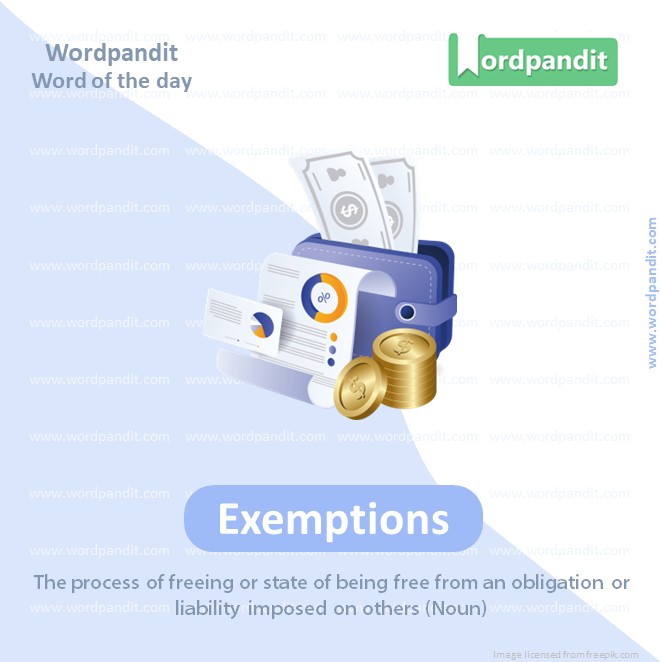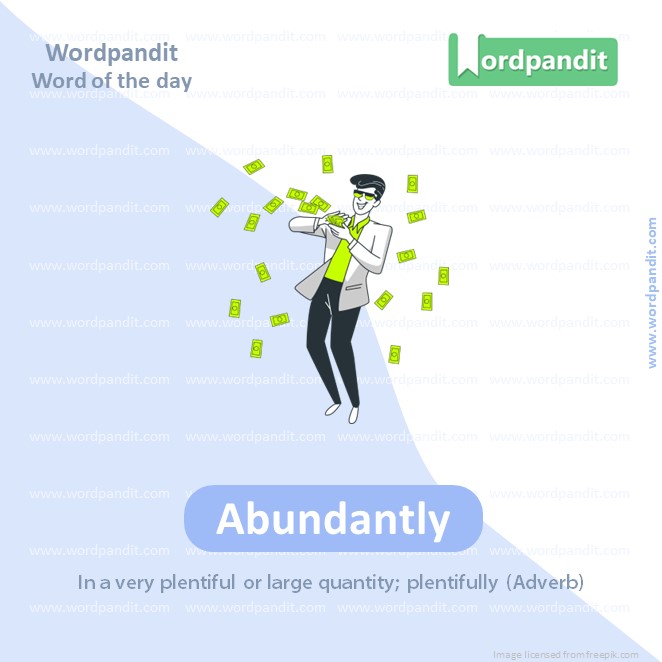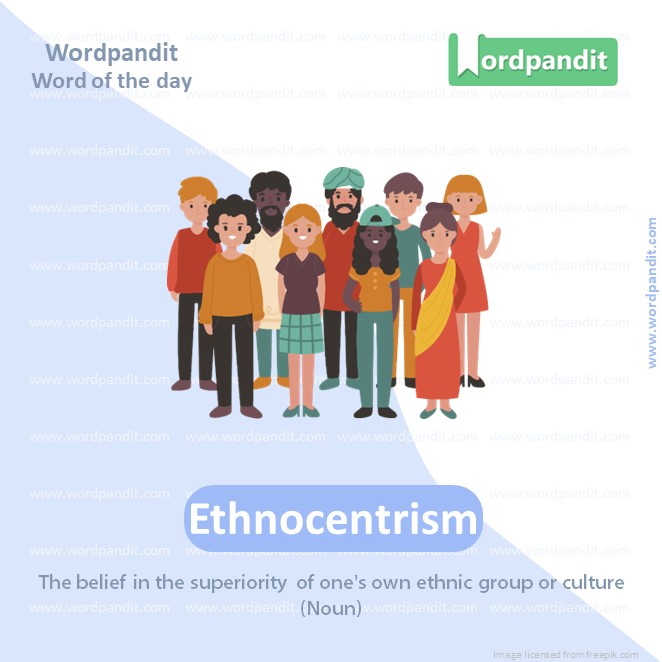Daily Vocabulary from Indian Newspapers and Publications
Welcome to Wordpandit’s Indian Vocabulary Hub
At Wordpandit, we understand the importance of staying rooted in the local context while expanding your language skills. This section focuses on enriching your vocabulary with words and phrases drawn from India’s leading newspapers and publications, ensuring you're learning vocabulary that is practical, relevant, and uniquely Indian.
Why Indian Sources Matter
We believe that the best way to master any language is by immersing yourself in local content. That’s why we carefully curate vocabulary from top Indian publications, including:
- The Hindu
- The Times of India
- The Economic Times
- Hindustan Times
- Live Mint
- The Indian Express
- And many others...
Stay Updated, Stay Relevant
With daily updates from Indian news sources, you’ll be consistently learning words that reflect the trends and shifts in Indian society and culture. Our focus is to provide vocabulary that enhances your understanding of the language in an Indian context.
How Wordpandit Supports Your Goals
Whether you’re preparing for exams, aiming to improve your professional communication, or simply want to stay connected with the latest Indian vocabulary, Wordpandit is here to guide you every step of the way.
Learn with a Practical Approach
Our interactive learning methodology includes real-world examples, engaging activities, and context-specific usage to ensure that every word becomes part of your active vocabulary.
Dive into Indian Vocabulary Today!
Why Choose Wordpandit?
Practical Learning: Focus on words you'll actually encounter in real-world reading, enhancing your comprehension and communication skills.
Diverse Content: From current affairs to scientific breakthroughs, our varied sources expose you to vocabulary across multiple domains.
Effortless Integration: Make Wordpandit a part of your daily routine. Just a few minutes each day can significantly boost your lexicon over time.
Your Path to Vocabulary Mastery
- Visit our Daily Vocabulary section regularly
- Explore new words and their usage in context
- Practice incorporating these words into your own writing and speech
- Track your progress as your vocabulary expands
Start Your Journey Today
Embark on your vocabulary enhancement journey with Wordpandit. By consistently engaging with our daily posts, you'll build a robust vocabulary that serves you well in academic, professional, and personal contexts.
Remember, a word a day keeps linguistic limitations at bay. Make Wordpandit your daily companion in the quest for vocabulary excellence!
WORD-1: Incentivise
Context:
"All its intended objectives were achieved despite covering a short stretch which did not fully incentivise its users." - Indian Express
Explanatory Paragraph:
The word "incentivise" refers to the act of encouraging or motivating someone to do something by offering a reward or incentive. It's often used in contexts where individuals or groups are being nudged toward certain behaviors, usually through benefits like financial gains, discounts, privileges, or moral persuasion. In the provided context, the system or infrastructure didn't offer enough motivation or benefit to attract more users, even though it achieved its primary goals.
Meaning: To provide someone with an incentive to do something (Verb)
Pronunciation: in-sen-tuh-vyz
Difficulty Level: ⭐⭐ Beginner-Intermediate
Etymology: Derived from the noun "incentive", which has Latin roots in *incentivum* ("something that sets the tune"), with the verb form gaining popularity in the 20th century.
Prashant Sir's Notes:
"Incentivise" is a powerful action word often used in economics, policymaking, and corporate strategy. Whenever you think about how behavior is shaped or encouraged—whether through money, rewards, or systems—this verb is your go-to.
Synonyms & Antonyms:
Synonyms: motivate, encourage, stimulate, spur, prompt
Antonyms: discourage, deter, dissuade, demotivate
Usage Examples:
- The government introduced tax benefits to incentivise the use of electric vehicles.
- Companies often incentivise employees with bonuses to boost productivity.
- Schools are trying to incentivise healthy eating by offering rewards to students who choose nutritious meals.
- To incentivise innovation, the startup offered equity shares to its developers.
Cultural Reference:
"You have to incentivise people to work. If you make everything free, there is no drive left." — A paraphrased idea from economist Milton Friedman
Think About It:
Can incentives sometimes backfire and lead to unethical behavior or unintended consequences?
Quick Activity:
Think of a habit you want to develop (e.g., exercising, reading daily). Write down three ways you could incentivise yourself to stick to it.
Memory Tip:
Remember: "Incentivise" contains "incentive" — so whenever you hear this word, think “incentive-ize” or “make someone want to do it.”
Real-World Application:
"Incentivise" is widely used in business, public policy, education, and even parenting. Whether it's a bonus system at work, tax breaks for sustainable living, or giving stars to children for doing chores — it's all about providing motivation to take action.
WORD-2: Necessitated
Context:
"The odd-even experiment in 2016 was necessitated during a “public health emergency”." - Indian Express
Explanatory Paragraph:
The word "necessitated" means something was made necessary or required due to circumstances. It indicates that an action, decision, or change was not optional, but rather demanded by a situation. In the context of the sentence, the odd-even vehicle rule was not implemented by choice, but because the deteriorating air quality made it unavoidable during a public health crisis.
Meaning: Made something necessary as a result or consequence (Verb - past tense)
Pronunciation: neh-sess-uh-tay-tid
Difficulty Level: ⭐⭐ Intermediate
Etymology: From Latin *necessitas* ("necessity"), via Old French *necessiter*, meaning "to make necessary".
Prashant Sir's Notes:
"Necessitated" is used when something external compels an action—usually in serious, urgent, or formal situations. Think of it as the opposite of doing something voluntarily; the situation leaves no other choice.
Synonyms & Antonyms:
Synonyms: required, demanded, compelled, warranted, forced
Antonyms: avoided, optional, unnecessary, voluntary
Usage Examples:
- The sudden breakdown of the system necessitated immediate repairs.
- Changing climate patterns have necessitated new farming techniques.
- The injury necessitated surgery and months of rehabilitation.
- Security concerns necessitated a complete lockdown of the facility.
Cultural Reference:
"War, by its very nature, has always necessitated innovation." – A paraphrased sentiment commonly expressed in military and historical analyses.
Think About It:
Can you think of a time when a difficult situation necessitated a major life change for you or someone you know?
Quick Activity:
Write two sentences: one using "necessitated" in a personal context, and another in a global or societal context.
Memory Tip:
Think “necessary” leads to “necessitate” — if something is necessary, it may necessitate an action!
Real-World Application:
"Necessitated" is commonly found in academic, legal, health, and political writing where decisions are driven by urgent needs — such as policy changes, emergency responses, or business pivots.
WORD-3: Exemptions
Context:
"The overall impact would be a mathematical function of the contributory share of the vehicles to the total pollution (varies usually between 30 per cent to 50 per cent) and the proportion of vehicles which stay off the road (<50 per cent depending on exemptions and degree of enforcement)." - Indian Express
Explanatory Paragraph:
"Exemptions" refer to official permissions allowing someone or something to avoid a rule, duty, or requirement. In the sentence above, certain vehicles were likely allowed to stay on the road even during restrictions — for example, emergency or essential service vehicles. These exemptions affect how well such policies reduce pollution, as the fewer vehicles exempted, the more effective the rule is likely to be.
Meaning: Permissions that free someone from an obligation or rule (Noun - plural)
Pronunciation: ig-zemp-shuhnz
Difficulty Level: ⭐⭐ Intermediate
Etymology: From Latin *exemptio*, meaning “a freeing,” from *eximere* (“to take out, remove”).
Prashant Sir's Notes:
“Exemptions” are used across legal, academic, financial, and public policy contexts. Think of them as “hall passes” — they allow you to bypass a general rule. Always ask: what qualifies something or someone for exemption?
Synonyms & Antonyms:
Synonyms: exclusions, waivers, immunities, exceptions, pardons
Antonyms: obligations, requirements, mandates, inclusions
Usage Examples:
- Medical exemptions were granted to students unable to take the physical fitness test.
- The tax exemptions helped small businesses recover after the economic slowdown.
- Several categories of vehicles received exemptions from the odd-even traffic rule.
- He applied for an exemption from jury duty due to his medical condition.
Cultural Reference:
"Exemptions and loopholes are how the rich avoid taxes." – A common narrative in discussions around global tax reforms and equity.
Think About It:
When do exemptions serve justice, and when do they undermine fairness or equality?
Quick Activity:
List 3 types of exemptions you are aware of (e.g., tax exemptions, health-related exemptions). Try to write one sentence for each.
Memory Tip:
Think: “Exempt = Exit from obligation” → Exemptions let you exit the rules others must follow.
Real-World Application:
"Exemptions" are regularly used in areas such as taxation (tax exemptions), education (exam exemptions), law (military exemptions), and transport policies. They shape how rules are applied and to whom they apply — often impacting effectiveness and fairness.
WORD-4: Abundantly
Context:
"It is abundantly clear that editor and writer Anastasia Marks is also a Swiftie." - Indian Express
Explanatory Paragraph:
"Abundantly" is an adverb that means "in large amounts" or "very clearly." When someone says something is "abundantly clear," they mean it is more than obvious or unmistakable. In this context, the article is pointing out that it's very evident—without a doubt—that Anastasia Marks is a Taylor Swift fan. The word adds emphasis and certainty to the statement.
Meaning: In large quantities; very clearly or obviously (Adverb)
Pronunciation: uh-bun-dunt-lee
Difficulty Level: ⭐ Beginner
Etymology: From Latin *abundantia*, meaning “fullness, plenty,” derived from *abundare* (“to overflow”).
Prashant Sir's Notes:
This is a classic "intensifier" adverb. When you want to drive home how obvious, full, or excessive something is, "abundantly" does the job. A useful word for both formal and informal communication.
Synonyms & Antonyms:
Synonyms: clearly, obviously, plentifully, generously, excessively
Antonyms: scarcely, barely, insufficiently, unclearly
Usage Examples:
- She was abundantly grateful for the help she received during the crisis.
- The garden bloomed abundantly after the monsoon rains.
- It is abundantly clear that the policy needs to be revised.
- They spoke abundantly about the joys of parenthood.
Cultural Reference:
"It is abundantly clear that we must take immediate action." – A phrase frequently used in political speeches to convey urgency and certainty.
Think About It:
Why do we sometimes use strong words like "abundantly" instead of just "clearly"? What effect does it have on communication?
Quick Activity:
Replace "very" in the following sentence with "abundantly":
“It is very obvious that they made a mistake.” → ________
Memory Tip:
Think of a cornucopia — the horn of plenty — overflowing with fruits. “Abundantly” means something is overflowing or more than enough.
Real-World Application:
"Abundantly" is useful in both writing and speaking when you want to emphasize certainty or quantity — whether you’re describing emotions, evidence, resources, or clarity in an argument.
WORD-5: Ethnocentrism
Context:
"How much of a role did European Christian theology and ethnocentrism play in framing the purpose and methodology of the exercise." - Indian Express
Explanatory Paragraph:
"Ethnocentrism" is the belief that one’s own culture, ethnic group, or nation is superior to others. This mindset often leads to judging other cultures by the standards and values of one's own, rather than trying to understand them on their own terms. In the given context, the author questions whether European Christian ideologies and a sense of cultural superiority (ethnocentrism) influenced how certain historical or social processes were structured or interpreted.
Meaning: The belief in the inherent superiority of one's own ethnic group or culture (Noun)
Pronunciation: eth-no-sen-tri-zum
Difficulty Level: ⭐⭐⭐ Advanced
Etymology: Coined in the early 20th century by sociologist William G. Sumner, from Greek *ethnos* ("nation") + *centrism* ("centered on").
Prashant Sir's Notes:
This is a deeply analytical and sociological term. Whenever you're evaluating how societies interact — especially in colonial, global, or inter-cultural contexts — “ethnocentrism” becomes an essential concept. Watch out for how it subtly shapes viewpoints, policies, and history.
Synonyms & Antonyms:
Synonyms: cultural superiority, nationalism, xenocentrism (opposite in form but often compared), chauvinism
Antonyms: cultural relativism, inclusivity, open-mindedness, cosmopolitanism
Usage Examples:
- Ethnocentrism can hinder cross-cultural understanding and lead to stereotyping.
- The curriculum was criticized for promoting ethnocentrism by ignoring non-Western perspectives.
- Ethnocentrism in colonial policies often justified exploitation under the guise of “civilizing missions.”
- Traveling and learning other languages can reduce one’s ethnocentric bias.
Cultural Reference:
Ethnocentrism was central to the European colonial mindset, where colonizers viewed their own cultures as superior and used that belief to justify domination and control over indigenous populations.
Think About It:
Is it possible to completely eliminate ethnocentrism, or is it a natural bias we all must constantly work to overcome?
Quick Activity:
Write down one belief or practice from your own culture. Now, try to explain it from an outsider’s perspective without assuming it’s better or more “normal.” This is a small step toward reducing ethnocentrism.
Memory Tip:
Break it down: *Ethno* (ethnic group) + *centrism* (centered) → Seeing your ethnic group as the center of everything.
Real-World Application:
Understanding ethnocentrism is critical in fields like international relations, anthropology, education, and media. It helps individuals and institutions foster more inclusive and culturally aware perspectives, reducing conflict and bias.


